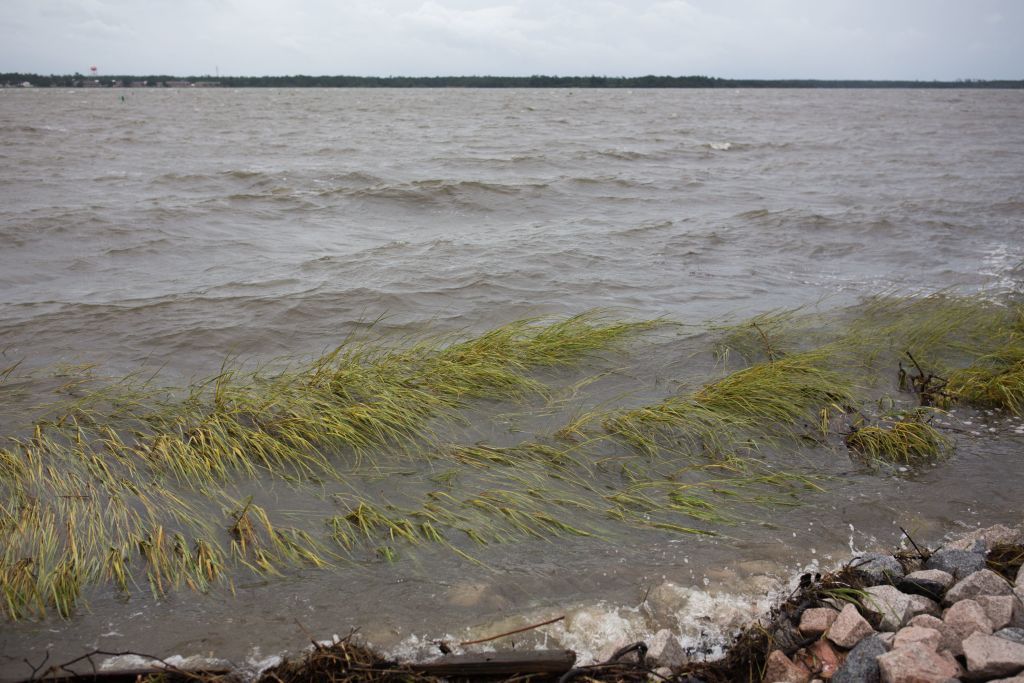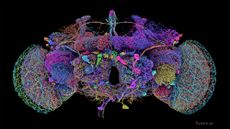Ocean currents are speeding up faster than scientists predicted


Global ocean currents are speeding up more rapidly than scientists had anticipated — in part due to climate change, per a paper published Wednesday in Science Advances.
The trend is "much greater than the natural variability," the paper states. Due largely to faster surface winds, 76 percent of the top 2,000 meters of Earth's oceans show an increase in intensity of circulation, based on data from the past two decades.
Surging winds are a predicted symptom of climate change, but such an increase wasn't expected to happen until closer to the end of the century, reports The Washington Post. "This suggests the Earth might actually be more sensitive to climate change than our simulations can currently show," Michael McPhaden, an author of the paper and National Oceanic and Atmospheric Administration researcher, told the Post.
Subscribe to The Week
Escape your echo chamber. Get the facts behind the news, plus analysis from multiple perspectives.

Sign up for The Week's Free Newsletters
From our morning news briefing to a weekly Good News Newsletter, get the best of The Week delivered directly to your inbox.
From our morning news briefing to a weekly Good News Newsletter, get the best of The Week delivered directly to your inbox.
Accelerated ocean currents may affect jet streams, weather patterns, and the amount of heat stored in the ocean's depths, reports Science magazine.
While the paper presents a "really huge increase" in acceleration, more research is needed to be certain the quickening is due to climate change, Susan Wijffels, oceanographer at the Woods Hole Oceanographic Institution, told Science magazine. "This paper does highlight how ill prepared we are to truly diagnose what's going on."
The paper calls for a more thorough monitoring of global ocean circulation to bring more clarity.
Sign up for Today's Best Articles in your inbox
A free daily email with the biggest news stories of the day – and the best features from TheWeek.com
Taylor Watson is audience engagement editor for TheWeek.com and a former editorial assistant. She graduated from Syracuse University, with a major in magazine journalism and minors in food studies and nutrition. Taylor has previously written for Runner's World, Vice, and more.
-
 6 charming homes for the whimsical
6 charming homes for the whimsicalFeature Featuring a 1924 factory-turned-loft in San Francisco and a home with custom murals in Yucca Valley
By The Week Staff Published
-
 Big tech's big pivot
Big tech's big pivotOpinion How Silicon Valley's corporate titans learned to love Trump
By Theunis Bates Published
-
 Stacy Horn's 6 favorite works that explore the spectrum of evil
Stacy Horn's 6 favorite works that explore the spectrum of evilFeature The author recommends works by Kazuo Ishiguro, Anthony Doerr, and more
By The Week US Published
-
 Blue Origin conducts 1st test flight of massive rocket
Blue Origin conducts 1st test flight of massive rocketSpeed Read The Jeff Bezos-founded space company conducted a mostly successful test flight of its 320-foot-tall New Glenn rocket
By Peter Weber, The Week US Published
-
 US won its war on 'murder hornets,' officials say
US won its war on 'murder hornets,' officials saySpeed Read The announcement comes five years after the hornets were first spotted in the US
By Peter Weber, The Week US Published
-
 Dark energy data suggest Einstein was right
Dark energy data suggest Einstein was rightSpeed Read Albert Einstein's 1915 theory of general relativity has been proven correct, according to data collected by the Dark Energy Spectroscopic Instrument
By Peter Weber, The Week US Published
-
 New DNA tests of Pompeii dead upend popular stories
New DNA tests of Pompeii dead upend popular storiesSpeed Read An analysis of skeletal remains reveals that some Mount Vesuvius victims have been wrongly identified
By Peter Weber, The Week US Published
-
 NASA's Europa Clipper blasts off, seeking an ocean
NASA's Europa Clipper blasts off, seeking an oceanSpeed Read The ship is headed toward Jupiter on a yearslong journey
By Peter Weber, The Week US Published
-
 Detailed map of fly's brain holds clues to human mind
Detailed map of fly's brain holds clues to human mindSpeed Read This remarkable fruit fly brain analysis will aid in future human brain research
By Peter Weber, The Week US Published
-
 Blind people will listen to next week's total eclipse
Blind people will listen to next week's total eclipseSpeed Read While they can't see the event, they can hear it with a device that translates the sky's brightness into music
By Peter Weber, The Week US Published
-
 Melting polar ice is messing with global timekeeping
Melting polar ice is messing with global timekeepingSpeed Read Ice loss caused by climate change is slowing the Earth's rotation
By Peter Weber, The Week US Published